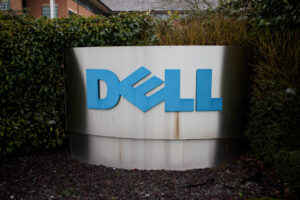Hootsuite and Robinhood CEOs explain layoffs, Chipotle settles workplace suit
Plus: The greatest factors influencing employee perception about their employer

Let’s explore some notable stories from August 8-12, 2022 — and pull out a few timely, tactical takeaways along the way:
- Hootsuite and Robinhood CEOs explain massive layoffs with divergent messaging approaches
Hootsuite eliminated 30% of its workforce this week, the latest in a series of layoffs affecting the tech sector including Robinhood, which laid off 23% of its workforce last week.
Hootsuite’s CEO framed the decision as a “refocus,” reports TechCrunch:
“We need to refocus our strategies to drive efficiency, growth and financial sustainability,” CEO Tom Keiser said in a statement sent to TechCrunch. The company offered no specifics on what exactly is changing about the business. It did not disclose the specific number of workers affected, nor would it say if they received any severance.
Robinhood’s CEO and co-founder, Vlad Tenev, took a more employee-focused approach and wrote a blog post explaining the specific departments the layoffs would affect and taking personal responsibility for the over-hiring that led to this moment:
I want to acknowledge how unsettling these types of changes are. We often talk about our mission to democratize finance for all, and one of the most cherished aspects of Robinhood is the teamwork and camaraderie involved in working towards our mission — together. I feel incredibly privileged and fortunate to have the opportunity to build with all of you.
Last year, we staffed many of our operations functions under the assumption that the heightened retail engagement we had been seeing with the stock and crypto markets in the COVID era would persist into 2022. In this new environment, we are operating with more staffing than appropriate. As CEO, I approved and took responsibility for our ambitious staffing trajectory – this is on me.
He also explained the resources that employees would be offered to laid-off workers:
Everyone will receive an email and a Slack message with your status – with resources and support if you are leaving. We’re sending everyone a message immediately after this meeting so you don’t have to wait for clarity. Departing Robinhoodies will be offered the opportunity to remain employed with Robinhood through October 1, 2022 and receive their regular pay and benefits (including equity vesting). They will also be offered cash severance, payment of COBRA medical, dental and vision insurance premiums and job search assistance (including an opt in Robinhood Alumni Talent Directory).
Each impacted Hoodie will be able to schedule time with our people team to discuss their specific situation live. We know that this news is tough for all Robinhoodies, and we are also offering wellness support to those who would like it.
Though these two announcements arrived less than a week apart and both affect businesses in the tech sector, the similarities stop there. As TechCrunch notes, Keiser’s words about the Hootsuite layoffs offer no specifics or plan for the future, no specific numbers on who is affected, and — in the greatest contrast from the Robinhood message — no mention of how this news was delivered to employees or empathy for their situation was conveyed.
Tenev’s blog post, on the other hand, leads with an empathetic expression that reframes a dark chapter in the company’s history as an opportunity to reinforce its culture, values and mission. Tenev’s sense of personal responsibility for the poor decision to over-hire adds a seldom-seen degree of accountability to the message that demonstrates those values.
By going deeper into the logic behind how employees were informed, Tenev also offers a rare insight into how change communications can be shared with wellness front and center that’s worth emulating.
All told, Tenev take an opportunity to take control of the narrative by making himself, and Robinhood, vulnerable while Keiser does not. Which approach do you consider to be more effective?
- These are the factors most affect employee perceptions of their employers
Recent research from MSL and The Harris Poll identifies the people who play the greatest role in influencing an employee’s perception of their employer-and it varies depending on each employee’s work situation.
A majority (69%) of deskless workers said that their perception of their employer is affected a great deal, or moderate amount by other employees. Family members also played a great influence (62%).
The study notes that desk-based workers cited a wider variety of influence than deskless workers, with 70% of desk-based workers citing internal announcements as a primary factor, followed by concerns over what their company says publicly (69%) and what other employees say (68%).
“Most internal communications have an unintentional but inherent bias toward desk-based workers, so many traditional tactics and channels fail to connect,” says Kelly Jankowski, MSL managing director of corporate reputation. “Companies that want to create lasting bonds with all employees must turn to non-traditional channels and rethink their strategy to include efforts that intersect with the natural workflow of their employees, particularly those who are deskless.”
Check out the full report here.
- What Chipotle’s record settlement over violating worker protection laws says about affirming your values
Chipotle agreed to pay $20 million dollars to settle a New York City workplace case after the city determined that the fast-casual Mexican chain violated scheduling and sick-leave laws for four years, affecting approximately 13,000 employees. This marks the largest settlement of its kind in NYC history.
The city said that Chipotle violated multiple laws, including a law stating large employers must provide up to 56 hours of paid sick leave per year, and the Fair Workweek Law that requires fast-food employers to provide workers with their schedules at least two weeks in advance or pay a bonus for last-minute shifts.
The action, affecting about 13,000 workers, sends a message “that we won’t stand by when workers’ rights are violated,” Mayor Eric Adams said in a statement.
“We’re pleased to be able to resolve these issues,” Scott Boatwright, the company’s chief restaurant officer, said in a statement. Mr. Boatwright added that the company had carried out a number of changes to ensure compliance with the law, such as new time-keeping technology, and that Chipotle looked forward to “continuing to promote the goals of predictable scheduling and access to work hours for those who want them.”
While Chipotle’s assurance that it has implemented new technology to its scheduling and sick leave policies stay above board, the underhanded suggestion that the goals of predictable scheduling and access to work hours are only of value to “those who want them” demonstrates a lack of understanding for employee experience and well-being.
This statement also amounts to a missed opportunity for Chipotle – teasing new tech and policies without explaining how they will be enforced across locations sets the company up for accusations of only offering gestural solutions. It’s not uncommon for fast food companies to struggle with manager communications, as franchise owners have a tendency to not communicate corporate directives and regional policies back to store leaders. This serves as a reminder that it’s one thing to announce change in your organization, and another thing to explain how that change will be implemented effectively to ensure history does not repeat itself.
- How about some good news?
This week, let’s draw inspiration from:
- A new study that that examines how using smartphones can help improve memory skills
- Switzerland’s plan to use underground cargo tunnels to reduce traffic
- Research investigating how clean stool samples may be used to cure diabetes
- Ragan Training, which is an incredible resource for communication inspiration and education.
- You also deserve an award. Get your due here!
Take good care of yourselves, comms champion, and keep up the good work.








With regard to story number 2, what do the researchers consider ‘traditional tactics and channels’?